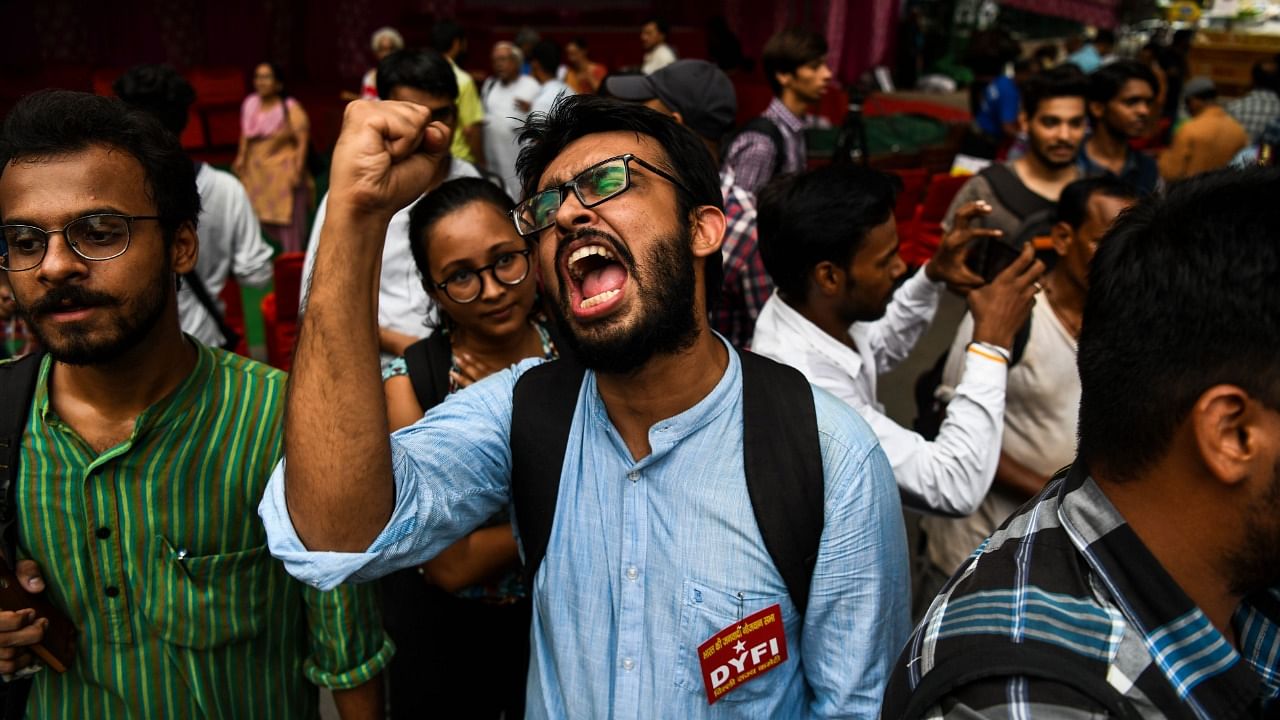
The Unlawful Activities (Prevention) Act in its present form poses a serious threat to the freedom of citizens and to democracy, and the government should enact a fresh legislation to replace it, a group of former bureaucrats has said in an open letter.
The UAPA has a chequered history, they said.
This legislation, passed in 1967 on the recommendations of the National Integration Council to combat communalism, casteism, regionalism and linguistic chauvinism and to deal with associations engaged in secessionist activities, has changed colour over time and has now become a statute that has created new categories of offences and punishments, they said.
The UAPA has been in existence in India's statute books for over five decades and the harsh amendments it has gone through in recent years have made it “draconian, repressive, and amenable to gross misuse at the hands of ruling politicians and the police”, according to the open letter written by 108 former civil servants under the aegis of the Constitutional Conduct Group.
The law, as it stands today, has many flaws and loopholes making it amenable to large scale abuse and misuse by some politicians and overzealous policemen, it said.
Participating in a session at the G-7 Summit in Cornwall, the United Kingdom, held between 11 and 13 June 2021, Prime Minister Narendra Modi spoke of democracy and freedom being part of the Indian ethos, it said.
"If the Prime Minister is true to his word, his government should heed the call of legal luminaries and the ordinary public, appreciate that the UAPA in its present form poses a serious threat to the freedom of our citizens and to democracy and, after consulting legal experts and taking into account the views of Parliament, enact fresh legislation to replace the UAPA...," the letter read.
The former civil servants cited a written reply to Parliament by Union Minister of State for Home G Kishan Reddy in March this year to note that 1,948 persons were arrested under the UAPA in 1,226 cases across the country in 2019, a 72 per cent increase as compared to 2015.
The year 2019 saw the highest number of arrests in the country, particularly in Uttar Pradesh (498), Manipur (386), Tamil Nadu (308), Jammu & Kashmir (227), and Jharkhand (202), the letter said.
Also Read | UAPA, sedition law misused to stifle dissent, needed to be repealed, say former SC judges
Despite the large number of arrests under the UAPA, the number of prosecutions and convictions shows a steep decline, it said.
The government of India has admitted that a mere 2.2 per cent of the cases registered between 2016 and 2019 resulted in conviction, the letter said.
"We may conclude that the vast majority of the arrests under UAPA were made on specious grounds just to spread fear and muzzle dissent," it said.
"The most shocking of the arrests under the UAPA have been of persons accused in the Bhima-Koregaon case. Several well regarded activists who have fought throughout their lives for the rights of tribal people and other oppressed groups have been arrested as terrorists and, even today, languish in jail," the letter said.
Former Lieutenant Governor of Delhi Najeeb Jung, former Foreign Secretary Shyam Saran, former Social Justice and Empowerment Secretary Anita Agnihotri and former Health Secretary K Sujatha Rao are among the 108 signatories.